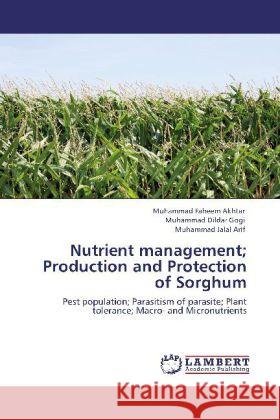Nutrient management; Production and Protection of Sorghum » książka
Nutrient management; Production and Protection of Sorghum
ISBN-13: 9783848431298 / Angielski / Miękka / 120 str.
The quality of sorghum is severely deteriorated by the Pyrilla perpusilla which is best controlled by Epiricania melanoleuca. Their tritrophic interaction is greatly affected by the host-plant quality. Plants growing in nutrient deficient environment are weak and vulnerable to pest attack. Macro- and micro-nutrients have a direct and greater impact on insect population, which is, although, primarily determined by genetic potential of plants, but can be modulated by mineral nutrition. This project was designed to evaluate impact of nutrient management on population dynamics of P. perpusilla and E. melanoleuca, percentage parasitism of E. melanoleuca on P. perpusilla and yield components of sorghum. Different combinations of various nutrient formulations (N, P, K, Zn, Br and humus) were evaluated in sorghum under the field conditions. The data collected revealed that nutrient application enhanced the pest population thus attracting more ecto-parasite and grain and other yield components. Nutrients in integration with insecticides gave best results with low pest population and maximum grain weight and other yield components.











